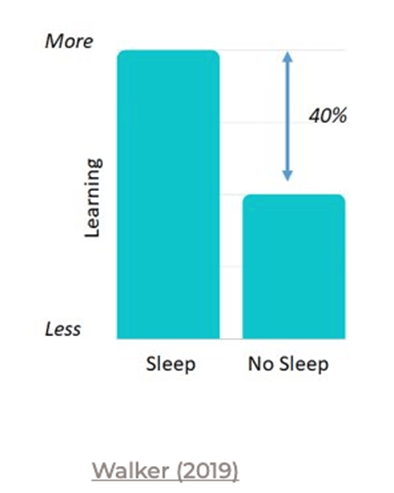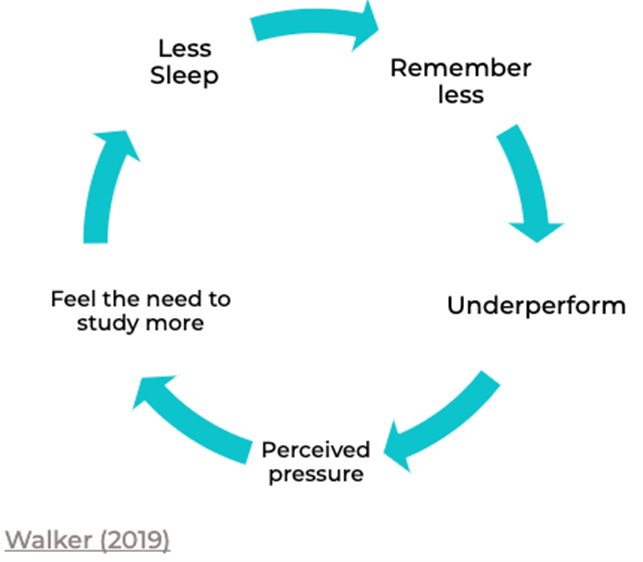📢 Join us for our Open Day (10 am, 21st January 2026) | Application Fee Waiver (*)
Meet our exceptional school leaders, take a guided tour expertly led by our amazing students, and learn more about BIS Hanoi Scholarships Programme 2026-27!

When adults have an important meeting or presentation to prepare for, the thoughts we have running through our mind might include:
These thoughts can make us feel anxious, unprepared, or even not good enough to complete the task. As a result, we take different actions. Initially we might procrastinate a little to stop feeling so nervous. However, we then move on and start gathering all the information required, making a plan, practising the presentation, and even visualising what a successful presentation looks like.
As adults, we’ve developed this cycle over time to help us reduce our stress levels, manage our time, and to ultimately achieve success.
This is also an ideal way for students to prepare for exam success. Better preparation reduces exam anxiety, which allows students to make good choices and perform better. However, teenage brains find it hard to think in these ways, whereas adults are good at it because we’ve had practice (Jensen, 2016).
.jpg?rev=78612912691043ba970c6eac34736a93&hash=F926C9ADF60712088BC227BF3252494D)
Managing Anxiety
Everyone feels anxiety before an exam - it's a normal way to feel when you want to do well. Optimal levels of anxiety and stress can actually help us to be psychologically and physically alert in the exam. Checking where your stress level is can help you to decide what will be the most effective action to support you in moving forward.
Finding the Right Stress Balance
Being under-stressed presents itself in a lack of focus or being demotivated. We've all felt times like these, and it usually means that we don't perform at our best, which further reduces our motivation.
 On the other hand, being overstressed pushes our brains into an emotional hijack mode, which means we're not able to make reasoned decisions or effectively manage our own emotions or anxiety (Yerkes and Dodson, 1908). Spending too much time in this panic zone interferes with our learning and memory, which can make it hard for students to focus on the questions or skills during the exam (Gino, 2017).
On the other hand, being overstressed pushes our brains into an emotional hijack mode, which means we're not able to make reasoned decisions or effectively manage our own emotions or anxiety (Yerkes and Dodson, 1908). Spending too much time in this panic zone interferes with our learning and memory, which can make it hard for students to focus on the questions or skills during the exam (Gino, 2017).
A Healthy Amount of Sleep
We often hear of students staying up late to cram for an assessment or finish a piece of homework. They fall into the trap of thinking that spending more time studying and less time sleeping will give greater confidence and - ultimately - a better result.
However, this has been found to be counterproductive. A sleep study which compared the test results of sleep-deprived students with those who consistently got 8 hours of sleep observed a 40% difference in memory test results (Walker, 2019).


A lack of sleep could be the difference between acing an exam and failing it. Spending even a week without the right amount of sleep can push students into the panic zone; their focus in lessons during the day is impacted, and in turn they feel the need to spend more time studying to make up for what they can’t remember due to a lack of sleep.
Sleep can help us consolidate what we’ve learned and remember it the next day. At their stage of brain development, students from Year 9 upwards should be getting 8-10 hours of sleep per night. This not only supports their brain and memory function, it also increases their capacity to respond to and deal with anxiety (Summer, 2022).
Effective Preparation
Much of the anxiety students have around exams comes from a lack of preparation and when retrieval is infrequent, or the only time this practice of remembering is used is in high stakes exam settings. 1,500 students were asked: does retrieval practice make you more or less anxious for tests?
 The Learning Scientists give an easy and detailed explanation of how to effectively use retrieval practice as a study method here.
The Learning Scientists give an easy and detailed explanation of how to effectively use retrieval practice as a study method here.
One of the biggest tips for approaching study and preparation for examinations is “Don’t cram! Space out your revision over time” (Daniel J., 2021). This is because our brain naturally forgets information over time (Ebbinghaus, 1885). After each cycle of practice, re-visit and re-learning, the connection in a student’s brain becomes stronger and that learning becomes easier...it takes less effort to remember (Dunlosky, 2013).
Below are some things to consider which might help in planning for spaced study practice and study at home.
How Parents Can Help
Modelling your own thoughts - and the steps you go through when faced with a challenging task - will help students to understand how they can replicate these processes when they prepare for exams.
Our students regularly view two things in particular as helpful support from their parents:
Students thrive on receiving regular encouragement linked to their effort and resilience, alongside reminders of when they overcame challenges in the past. This supports students in re-framing their thoughts. With healthy study habits, your child will also be happier in themselves.
Second, parents can deliberately pull students out of their study space to talk, exercise and eat together at agreed break times. This helps their brain to rest and recover, improving the quality of their study and focus overall.
Ms. Gemma Archer
Assistant Head of Secondary (IB)